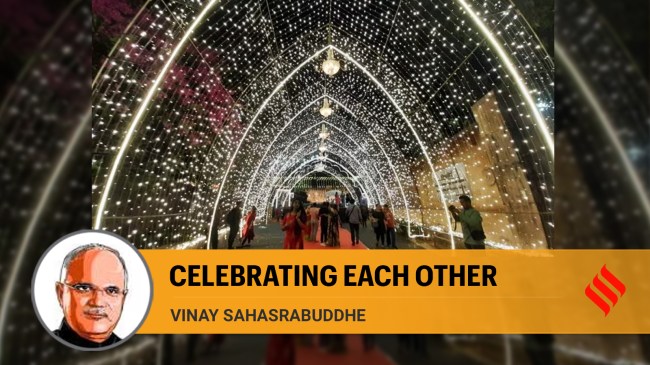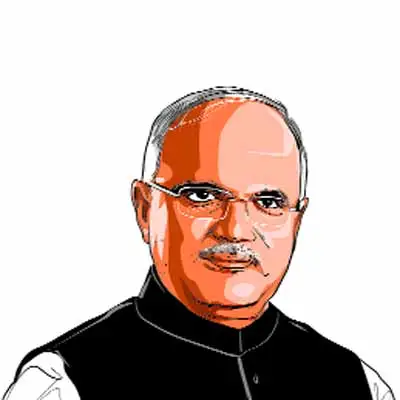Opinion This Diwali season, let’s focus on tradition, family — not smartphones
Indian festivals, including Diwali, are essentially a festival of relationships
 Apart from youngsters recognising the contribution of elders, many established rituals of Diwali provide for celebration of relationship between wife and husband, sister and brother as also the bond of trust between consumer and provider. (Express photo by Pradip Das)
Apart from youngsters recognising the contribution of elders, many established rituals of Diwali provide for celebration of relationship between wife and husband, sister and brother as also the bond of trust between consumer and provider. (Express photo by Pradip Das) Most festivals, especially Indian festivals, are all about relationships. Diwali, being the king of all festivals, is essentially a celebration of all relationships. Traditionally, Diwali starts with worshipping cows and at Dev Deepavali, considered to be the grand finale of Diwali, it is again the worship of Mother Nature, symbolised through celebration of deified Tulsi.
Celebration of prosperity, of good health and also of artistic talents are our traditional ways of recognising the importance of these faculties. All these are manifested in our rituals that are an integral part of Diwali. Apart from youngsters recognising the contribution of elders, many established rituals of Diwali provide for celebration of relationship between wife and husband, sister and brother as also the bond of trust between consumer and provider. Diwali reminds us that the ease of life that we strive for hinges essentially upon sustainable relationships.
Over the years, relationship cultivation and sustenance have become an academic discourse, even though this has largely remained confined to corporates — public relations, industrial relations, etc. However, sadly, even before the complete unfolding of various aspects of the discourse, the fast pace of life has started eating into its vitals. Diwali provides us an occasion to halt, look back and review how relationships are being handled by all of us.
Extreme individualist thinking, a general lack of understanding of the pre-requisites of a strong and healthy relationship and fast depleting authenticity in our interpersonal conversations are the three main challenges modern lifestyle has posed before us. All of them need serious application of mind.
First, disproportionate emphasis on ideas like personal space, privacy and individual choice has promoted a sinister trend of total disregard of the collective spirit. True, personal space is extremely important but one can’t forget the importance of collective spirit. Human beings are essentially social animals. Doing things on our own, exerting individual choice is undoubtedly important, but equally important is not to be completely unmindful of the society around us. “Doing things together” and enjoying bliss or facing adverse conditions together is extremely important. This involves sharing and caring. Not recognising these facts provides a fillip to ultra-individualistic approach. This eventually provides fertile ground for further fragmentation of families, groups, associations and, eventually, society.
Second is the acute short supply in understanding of some key perquisites of a strong, healthy relationship. To put it bluntly, interpersonal emotional bonds also need to be complemented by the mutuality of need to make it sustainable. The genuineness of intentions is the other factor that is the foundational need for relationships to blossom.
Third, for relationships to evolve, investment of time by all the stakeholders is critical. Whatever the relationship — teacher and the taught, voter and the vote-seeker, consumer and the service provider — adequate investment of time is a must. In the present era of “attention economy”, such investment of time — and more importantly “quality time” — has become difficult. This has promoted the growing trend of seeking maximum dividends with minimum investment.
Mutuality of respect, expectations, transparency and trust, too, are ignored more often than not.
Dialogues and conversations are the vehicles of relationship. Here again there are challenges galore. Poor language skills due to lack of understanding of perfect words, alternate terms, their connotations and nuances hamper our conversations and impact our relationships. Ironically, there are studies indicating how smartphones — the most modern equipment for conversations — is playing a spoilsport in relationships. Notably, our smartphone habits have added a new term called “phubbing” to the dictionary. Phubbing means the practice of snubbing others in favour of our mobile phones. A 2017 study, appropriately titled, “My life has become a major distraction from my cell phone” by Meredith E David and James Roberts suggests that phubbing can “lead to a decline in one of the most important relationships we can have as an adult: the one with our life partner.”
Smartphone conversations, oral as well as textual, have greatly enhanced the pace of communication, but perhaps at the cost of its depth, profundity, and, at times, even sincerity. Sociologically speaking, right at a time when people have realised the superiority of “appearing to be good” over “being genuinely good” smartphones have come handy many times as an instrument of illusion. The challenges that deep fakes and other abuses of artificial intelligence are likely to pose also cannot be undermined. Since most conversations these days are happening via smartphones, they are fast becoming more and more technical, formal, customary and, as a consequence, dry and artificial. Besides, interpersonal dialogues are also inter-situational and even inter-sentimental. Regardless of advancements in technologies, telephone conversations can never match the warmth of personal conversations, where eye contact, physical touch and even gestures play a great role.
The language of relationship has many scripts, making it both easy and difficult to send/receive messages. However, the key to this communication is in its authenticity. No matter how effectively we use tool kits and similar devices, authentic emotions need a natural manifestation, where our talk and walk go hand-in-hand eradicating the darkness of hypocrisy. Diwali reminds us that without actually lighting a lamp, no darkness can be eradicated.
The writer is president, Indian Council for Cultural Relations, former national vice-president of the BJP and MP, Rajya Sabha






